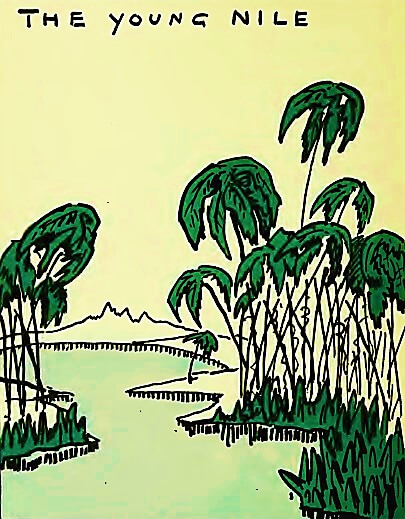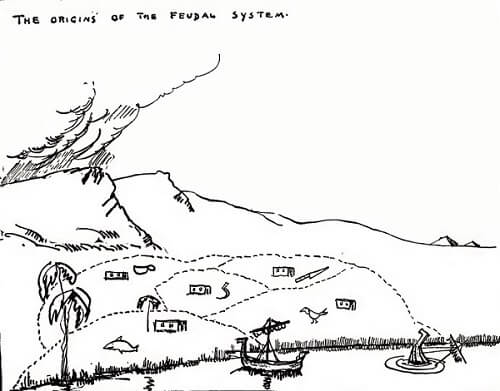Activity 1: Narrate the Chapter
- After you listen to the chapter, narrate the chapter aloud using your own words.
Activity 2: Illustrate How People Organize

Draw the process of how people organize into groups.
- Click the crayon above. Complete page 23 of 'Second Grade World History Coloring Pages, Copywork, and Writing.'
- Draw a family, the ancient unit of organization. Label the drawing, 'FAMILY UNIT.'
- Draw a clan, a group of families, the temporary ancient unit that pulled families together in times of trouble. Label the drawing, 'CLAN UNIT.'
- Draw a village, a more permanent group of families than clans. Label the drawing, 'VILLAGE UNIT.'
- Draw a state, a grouping of many villages or cities, the current predominant unit of organization. Label the drawing, 'STATE UNIT.'
Activity 3: Can You Find It?
Find the following in the picture:
- Individual Farms
- Houses
- Family Symbols (Hieroglyphics)
- Mr. Fish's Farm
- Mr. Sparrow's Farm
- Mr. Cup's Farm
- Mr. Knife's Farm
- Mr. Sickle's Farm
- Palm Trees
- Mr. Sparrow's Boat
- Mr. Fish's Boat
- The Nile River
- The Pyramids
Activity 4: Complete Coloring Pages, Copywork, and Writing

- Click the crayon above. Complete pages 24-25 of 'Second Grade World History Coloring Pages, Copywork, and Writing.'
 Ancient Man
Ancient Man
Ancient Man
Ancient Man



 Ancient Man
Ancient Man
Ancient Man
Ancient Man



